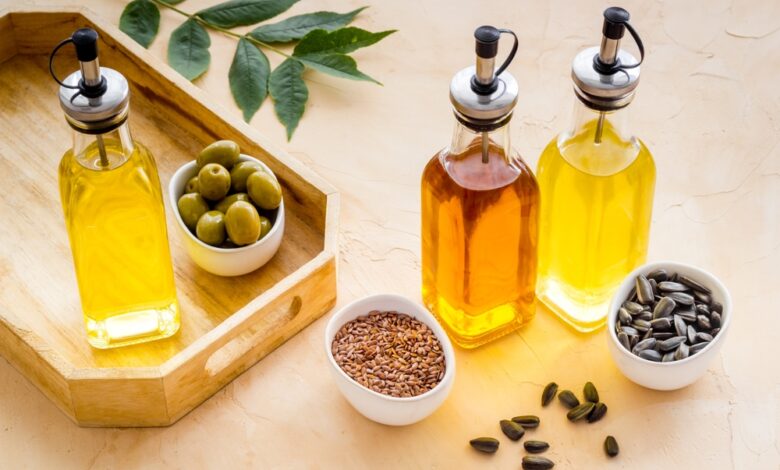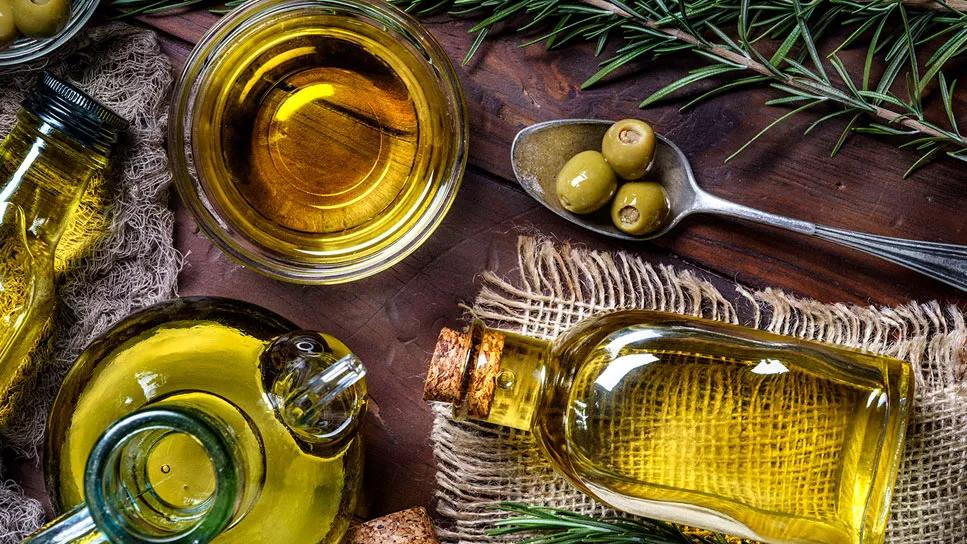Olive Oil Myths vs. Facts: Separating Fiction from Reality

Contents
Olive oil, often referred to as Zaitun Oil in certain regions, has long been hailed as a culinary and medicinal treasure. Originating from the fruit of the olive tree (Olea europaea), this golden elixir has been revered for its rich flavor, nutritional benefits, and therapeutic properties for millennia. Let’s embark on a journey through the world of olive oil and uncover its multifaceted wonders:
Unveiling the Health and Culinary Marvels of Olive Oil

Culinary Versatility:
Olive oil is celebrated for its remarkable versatility in the kitchen, where it serves as a staple ingredient in Mediterranean and international cuisines. Its smooth texture, fruity aroma, and delicate flavor profile make it an ideal choice for salad dressings, marinades, sautéing, roasting, and frying. From drizzling over fresh greens to enhancing the flavors of roasted vegetables and grilled meats, olive oil adds depth and richness to a wide range of dishes.
Nutritional Benefits:
Olive oil is renowned for its exceptional nutritional profile, rich in monounsaturated fats, antioxidants, and vitamins. It is a primary source of oleic acid, a healthy monounsaturated fat that has been associated with numerous health benefits, including improved heart health, reduced inflammation, and lower risk of chronic diseases such as cardiovascular disease and diabetes. Additionally, oliv oil contains polyphenols and tocopherols, powerful antioxidants that help protect cells from oxidative damage and support overall health and well-being.
Medicinal and Therapeutic Uses:
Beyond its culinary uses, oliv oil has a long history of medicinal and therapeutic applications. In traditional medicine, olive oil has been used to soothe and moisturize the skin, promote wound healing, and alleviate inflammation. It is also prized for its role in the Mediterranean diet, a dietary pattern associated with longevity and reduced risk of chronic diseases. From promoting digestive health to supporting cognitive function and weight management, oliv oil offers a myriad of health benefits that have been recognized and valued for centuries.
Cultural and Historical Significance:
Olive oil holds deep cultural and historical significance in the Mediterranean region, where it has been cultivated and consumed for thousands of years. It plays a central role in Mediterranean cuisine, where it is celebrated as a symbol of abundance, prosperity, and hospitality. In addition to its culinary importance, olive oil has been used in religious rituals, ceremonies, and cultural traditions, reflecting its sacred and symbolic significance in Mediterranean culture.

Sustainability and Environmental Impact:
As consumer awareness of sustainability and environmental responsibility grows, the olive oil industry has faced increasing scrutiny and pressure to adopt sustainable practices. Sustainable olive oil production involves practices such as organic farming, water conservation, soil preservation, and biodiversity conservation. Zeusslot By supporting sustainable olive oil producers, consumers can contribute to the preservation of olive groves, ecosystems, and cultural heritage for future generations.
In conclusion, olive oil stands as a testament to the timeless synergy between culinary excellence, nutritional wellness, and cultural heritage. Whether enjoyed as a flavorful condiment, a therapeutic elixir, or a symbol of cultural identity, olive oil continues to captivate and inspire people around the world with its rich history, culinary versatility, and health-enhancing properties. By embracing the wonders of olive oil, we celebrate the artistry of nature and the enduring legacy of one of the world’s most cherished culinary treasures.
Exploring the Pros and Cons of Olive Oil: A Versatile Culinary and Health Elixir
Olive oil, hailed for centuries as a culinary and medicinal gem, boasts a plethora of advantages that span from the kitchen to the realm of health and beauty. However, like any consumable, it also carries certain drawbacks that warrant consideration. Let’s delve into the strengths and weaknesses of oliv oil:
Advantages:
- Heart-Healthy Fats: Oliv oil is predominantly composed of monounsaturated fats, particularly oleic acid, which are associated with numerous health benefits, including improved heart health, reduced inflammation, and lower risk of cardiovascular diseases. Regular consumption of olive oil as part of a balanced diet has been linked to lower rates of heart disease and stroke.
- Rich in Antioxidants: Oliv oil contains potent antioxidants, such as polyphenols and vitamin E, which help protect cells from oxidative damage caused by free radicals. These antioxidants have anti-inflammatory properties and may contribute to reduced risk of chronic diseases, including cancer, Alzheimer’s disease, and age-related macular degeneration.
- Versatile Culinary Applications: Olive oil’s delicate flavor and smooth texture make it a versatile ingredient in cooking, baking, and food preparation. Whether used as a salad dressing, marinade, cooking oil, or finishing touch, olive oil adds depth, richness, and nutritional value to a wide range of dishes.
- Skin and Hair Benefits: Oliv oil is not only beneficial for internal health but also for external beauty. Its moisturizing and nourishing properties make it an excellent natural skincare ingredient, used in homemade remedies for dry skin, eczema, and sunburn. Additionally, olive oil can be applied to hair to improve shine, softness, and manageability.

Disadvantages:
- High Caloric Content: While oliv oil is rich in heart-healthy fats, it is also calorie-dense, with approximately 120 calories per tablespoon. Excessive consumption of olive oil, especially when used liberally in cooking or as a condiment, can contribute to caloric excess and weight gain if not accounted for in overall dietary intake.
- Potential for Rancidity: Oliv oil is susceptible to oxidation and rancidity when exposed to light, heat, and air. Improper storage or prolonged exposure to unfavorable conditions can degrade the quality of olive oil, leading to off-flavors, loss of aroma, and diminished nutritional value.
- Cost Considerations: High-quality extra virgin olive oil, prized for its superior taste and health benefits, can be relatively expensive compared to other cooking oils. While the investment in premium olive oil may be worthwhile for culinary enthusiasts and health-conscious consumers, it may pose budgetary constraints for some individuals or households.
- Environmental Impact: The production of oliv oil, particularly on a large scale, can have environmental consequences, including habitat destruction, water usage, and soil erosion. Unsustainable farming practices, such as intensive monoculture and excessive irrigation, may contribute to environmental degradation and biodiversity loss in olive-growing regions.
In conclusion, olive oil offers a wealth of advantages as a versatile culinary ingredient and health-promoting elixir. Its heart-healthy fats, antioxidant-rich profile, and culinary versatility make it a valuable addition to any diet. However, it’s essential to be mindful of potential drawbacks, such as its high caloric content, susceptibility to rancidity, cost considerations, and environmental impact. By incorporating olive oil into a balanced lifestyle with moderation and mindfulness, individuals can reap its benefits while minimizing potential drawbacks.
Read More Article About “MacBook Air M3 Review: Elevate Your Epic Tech Game“


